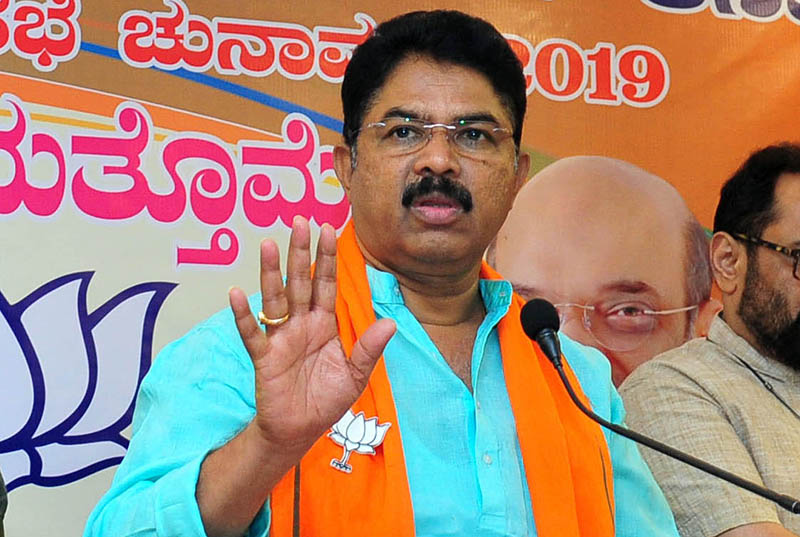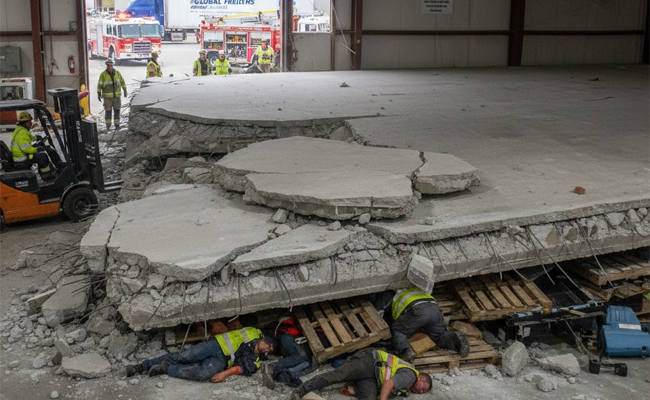Bengaluru, Apr 22: Karnataka Revenue Minister R Ashoka on Thursday said a total of Rs 571 crore is being released by the state government to various district administrations, including Bruhat Bengaluru Mahanagara Palike for COVID-19 management, amid a spike in cases.
"Aimed at controlling the COVID-19 pandemic Rs 305 crore is being released to Bengaluru Mahanagara Palike (BBMP), they can use the amount for medicines and medical care, to make payment for labours hired on contract basis, for leasing marriage halls and others as facilities for quarantine and RT-PCR tests," Ashoka said.
Speaking to reporters here, he said the money is immediately being released under the Revenue Department's Disaster Response Fund.
"Using this funds complaints regarding pending bills, delay in payment for contract workers among others can be resolved, and BBMP Commissioner has been given instructions to take immediate steps in this regard," he added.
Noting that a total of Rs 266 crore is being released to other district for COVID management, the minister said Kalaburagi is being alloted Rs 50 crore, Rs 15 crore for Bengaluru Rural and Bengaluru urban districts and Rs 10 crore each to Chamarajanagara, Davangere, Shivamogga, and Tumakuru among others.
Taking note of long queues at crematoriums in the city, Ashoka said that a 4-acre land in Tavarekere in Bengaluru will be opened for cremations of Covid-19 dead bodies.
"The land is ready... the land already has a cemetery...
it will be open from Friday and will function for two months... It can be used for cremation of 50-60 bodies daily as per traditions using fire wood, he said.
He also said the government has identified another 100- acre space, about three km from Tavarekere, where 50 bodies can be cremated daily.
"This will be ready in about two days.. so, in a day or two, everything will be fine," he added.
Aimed at relieving the pressure on crematoriums and burial grounds, Karnataka government on Wednesday had permitted cremation or burial of bodies of COVID-19 victims at the land or farm house owned by the family members or relatives of the deceased, by strictly adhering to the guidelines.
The Minister said the rush at crematoria and burial grounds in Bengaluru was due to people from nearby villages and towns.
"For the only reason of burning bodies, people are getting bodies to Bengaluru from hospitals located in a 15-20 km radius.
Thats why there is a burden. Rural Covid-19 patients from Magadi, Ramanagara, Channapatna and Devanahalli are coming to the city for hospitalisation," he added.
Let the Truth be known. If you read VB and like VB, please be a VB Supporter and Help us deliver the Truth to one and all.
Thane (PTI): Two minor girls were rescued after a prostitution racket was busted in Navi Mumbai, a police official said on Monday.
On a tip off about one Harish running a flesh trade racket, the Navi Mumbai Crime Branch started a probe on February 20, the official said.
"A decoy customer was sent to verify the information, following which a trap was laid in front of a hotel in Sector 11. The Anti Human Trafficking Cell nabbed Harish Vikas Chhari, a resident of Koparkhairane, while his associate Raj Singh is on the run. Two minor girls were rescued," the CBD Belapur police station official said.
A case has been registered under Bharatiya Nyaya Sanhita, Immoral Traffic (Prevention) Act, and Protection of Children from Sexual Offences (POCSO) Act, the official added.





